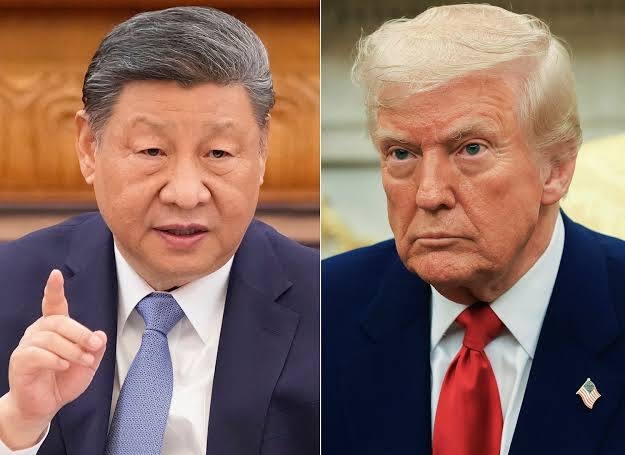By: Goodluck E. Adubazi, Abuja.
Beijing throws its weight behind Abuja as Tinubu administration rejects U.S. threats; aide accuses IPOB-linked campaign of stoking anti-government narrative
In Beijing, China yesterday issued a robust rebuke of any foreign military intervention in Nigeria after U.S. President Donald Trump threatened possible action over alleged persecution of Christians, declaring Beijing’s “unwavering support” for the Nigerian government and warning against using religion or human-rights rhetoric to justify interference.
Speaking at a Tuesday press briefing in Beijing, Chinese Foreign Ministry spokesperson Mao Ning said China “firmly opposes any country using religion and human rights as an excuse to interfere in other countries’ internal affairs, and threatening other countries with sanctions and force,” according to a report by TheCable. Mao added that China “stands by Nigeria as it leads its people on the development path suited to its national conditions,” framing the dispute as an affront to sovereignty.
The statement comes after comments attributed to President Trump that raised the prospect of U.S. military involvement in Nigeria in response to reports of violence against Christians — remarks that Abuja has angrily rejected.
Responding, in Abuja, the federal government urged Washington to respect Nigeria’s sovereignty and to abandon any plan to deploy American troops on Nigerian soil. Daniel Bwala, a senior aide to President Bola Tinubu, dismissed the allegations of state-sponsored religious genocide as part of an “orchestrated media campaign” intended to paint the administration as anti-Christian.
Appearing on Russia National TV on Monday, Mr. Bwala said independent monitors and credible civil society organizations have found no evidence to support claims of a Christian genocide. He accused elements sympathetic to the proscribed Indigenous People of Biafra (IPOB) of feeding U.S. lawmakers with misleading reports, and singled out some Republican senators for amplifying the narrative.
“We try our best to downplay the rhetoric because we know for sure that that can be the reflection of the realities on the ground,” Mr. Bwala said, arguing that data presented to U.S. policymakers was either sourced from or influenced by IPOB and therefore unreliable. He alleged that the narrative has been seized on by some U.S. right-wing figures seeking political distraction.
Bwala urged cooperation rather than confrontation, saying the Tinubu administration has made “massive progress” in tackling insecurity and is seeking military equipment — not foreign boots — to help combat insurgents. “We do not need the boots of the American soldiers on our soil. There has to be respect for our territorial integrity,” he said.
China’s intervention on Nigeria’s behalf underscores the growing diplomatic contest over influence in Africa and highlights the sensitivity surrounding external calls for intervention. Analysts say Beijing’s stance is likely to be welcomed in Abuja, which has repeatedly emphasised sovereignty and requested material assistance rather than foreign troop deployments.
Diplomatic sources in Abuja said the government will continue to engage partners on security assistance but will resist any measure perceived as infringing on national sovereignty. Washington has not yet formally responded to China’s Wednesday statement.
With Beijing publicly backing Abuja and Nigeria rejecting foreign troop deployments, the immediate prospect of U.S. military intervention appears to have met strong resistance from both the Nigerian and Chinese governments, setting the scene for a diplomatic standoff that could play out in international fora in the coming days.

